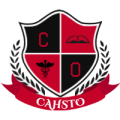The Respiratory Therapy Program is a healthcare-focused program that prepares students to become registered respiratory therapists. Students in this program will gain a deep understanding of respiratory anatomy and physiology, respiratory disease processes, and advanced respiratory care techniques.
Throughout the program, students will take courses in both classroom and clinical settings, allowing them to gain both theoretical knowledge and practical skills. Coursework will cover a wide range of topics, including patient assessment and monitoring, pharmacology, mechanical ventilation, airway management, and disease management.
Here are some possible topics that students might study in a Respiratory Therapy Program:
- Anatomy and physiology of the respiratory system
- Principles of mechanical ventilation and oxygen therapy
- Respiratory pharmacology and drug delivery
- Patient assessment and monitoring techniques
- Airway management and intubation
- Disease management and treatment for respiratory conditions, including COPD, asthma, and respiratory failure
- Pulmonary function testing and interpretation
- Sleep medicine and sleep apnea treatment
- Critical care management and life support techniques
- Emergency management of respiratory distress and failure.
In addition to classroom-based coursework, students will participate in clinical rotations in a variety of healthcare settings, including hospitals, long-term care facilities, and clinics. During these clinical rotations, students will have the opportunity to apply the knowledge and skills they have learned in the classroom to real-world situations, under the guidance of experienced respiratory therapists.
Upon completion of the program, graduates will be eligible to take a certification examination to become registered respiratory therapists. With this credential, graduates will be well-equipped to pursue careers in a variety of healthcare settings, including hospitals, clinics, and long-term care facilities. They may also choose to pursue further education and training in areas such as pulmonary function testing, sleep medicine, or critical care.

